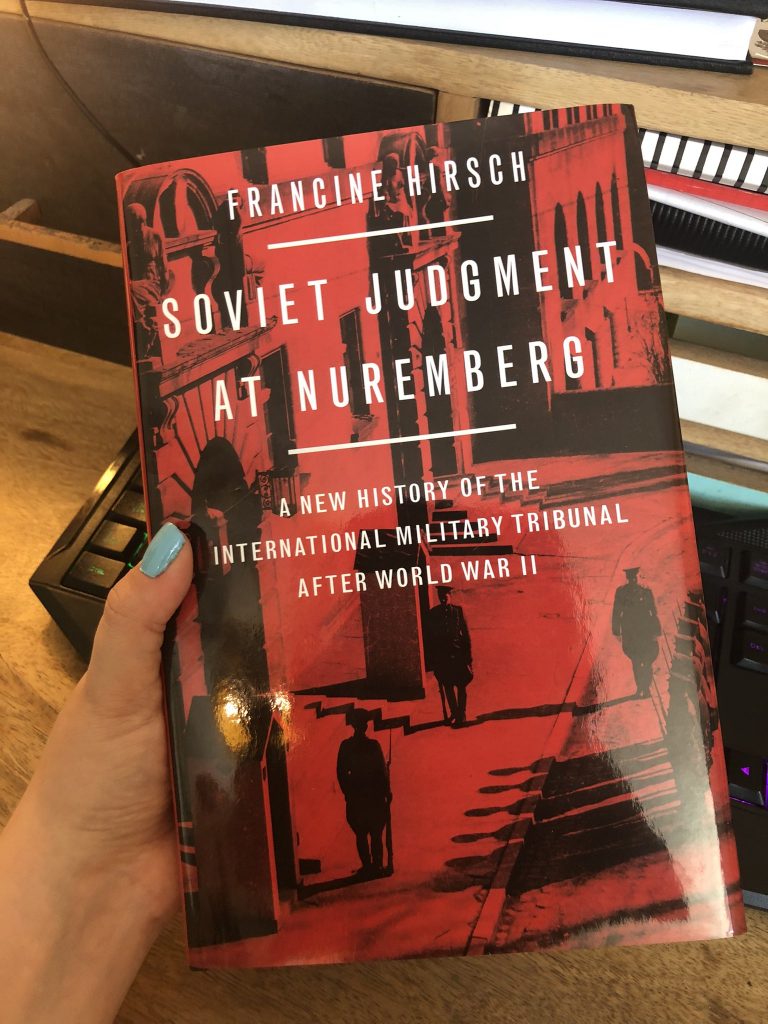A quick update on what the Warnings from the Archive team have been listening to/reading/watching this week. The pieces that have caught our interest and develop the themes and topics explored by the project.
This week, Margot has been enjoy Fran Hirsch’s brilliant ‘Soviet Judgment At Nuremberg’. Her book identifies the diverent political understandings of justice, responsibility, and state transgression between the Allies in the last months and immediate aftermath of the Second World War. Drawing attention to the ‘Nuremberg Myth’, Hirsch demonstrates the legal and diplomatic influence of the Soviet Union during the construction and operations of the Nuremberg trials. Rather than being part of a US-exclusive, moralising tale, the trial was a coalition project negotiated between the four allied powers. Her work also contributes to previous scholarship on the power of personal diplomacy and back-room/corridor decision-making (or, in this case, alcohol-driven) in shaping international compromises and alliances.
Margot also re-watched A Few Good Men and believes she can handle the truth (especially if it’s communicated via FOI).

Owen’s been reading Stephen Winter’s book ‘Transitional Justice in Established Democracies: A Political Theory’ and Marouf Hasian Jr.’s article ‘The “hysterical” Emily Hobhouse and Boer War concentration camp controversy‘. Both have been helpful for us in preparing our first article and thinking about reactions and responses to state transgression.
Hobhouse was a well-known critic of British foreign policy during the Boer War at the turn of the 20th Century. Her reports to the Manchester Guardian helped publicise the conditions in South Africa to British citizens, highlighting the treatment of Boer fighters and civilians.
‘Hobhouse eventually returned to Britain, motivated to raise issues with the government – she gave parliament a new perspective on the war and camps and turned the issue into a national scandal. This subsequently forced parliament to officially investigate the matter, despite the criticism and hostility that she received.’
Mena Sultan